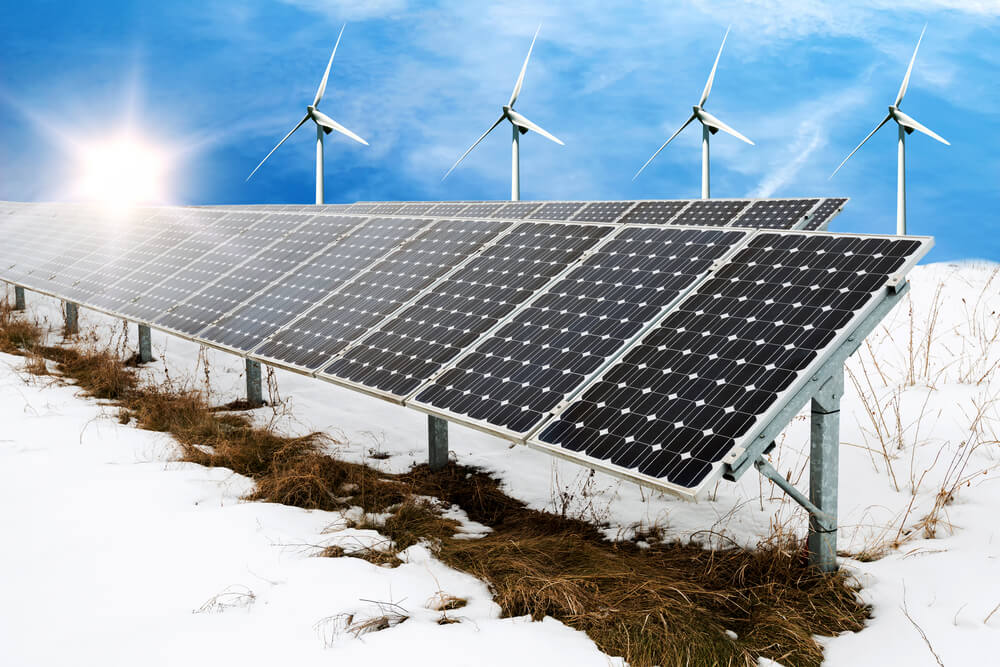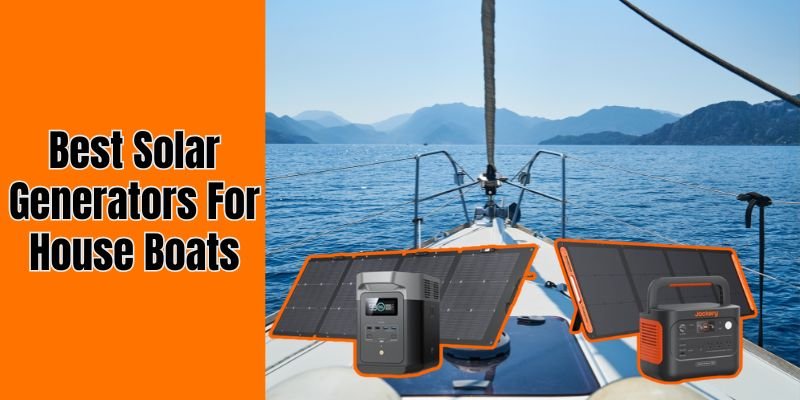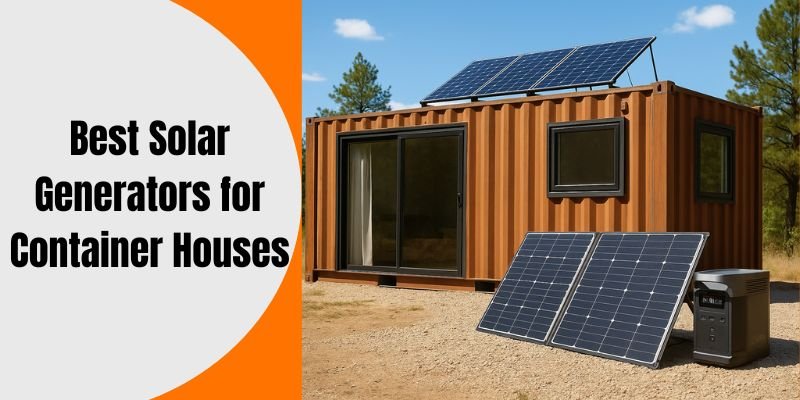Disclosure: This post contains affiliate links and I will be compensated if you make a purchase after clicking through my links. Learn More
Yes, solar panels work in winter. They generate electricity even on cloudy days.
Cool temperatures can improve efficiency. As winter approaches, many wonder about solar panel performance. Do they produce enough energy in colder months? Solar panels rely on sunlight, not heat, to generate power. Even with shorter daylight hours and snowy conditions, they continue to function.
Snow can reflect sunlight, potentially increasing energy capture. Moreover, cooler temperatures often enhance panel efficiency compared to hot summer days. While energy output may be lower than in summer, panels still contribute significantly to power needs. Understanding how solar technology adapts to seasonal changes helps homeowners make informed decisions. This blog explores how solar panels operate in winter, ensuring sustainable energy use year-round.
Solar Panel Basics
Solar panels are a fascinating piece of technology that many people are curious about, especially during the colder months. You might wonder how solar panels perform when the sun isn’t as strong. Let’s dive into the basics of how they work and what components make up a solar system. This will help you understand their functionality even in winter.
How Solar Panels Generate Power
Solar panels harness sunlight and convert it into electricity. They contain photovoltaic cells that absorb sunlight and create an electric current. Even in winter, these cells can capture solar energy. Snow can actually help by reflecting sunlight, increasing the amount of light that hits the panels.
Temperature doesn’t affect solar panel efficiency as much as you might think. In fact, cooler temperatures can enhance their performance. Panels operate more efficiently in cold weather, which means they can still generate power even on chilly days.
Components Of A Solar System
Your solar system is more than just panels. It includes several key components, each playing a critical role in power generation. The inverter converts the DC electricity from the panels into AC electricity for home use. Batteries store excess energy for later use, providing power during cloudy days or at night.
Racking systems hold the panels in place, ensuring they are positioned to maximize sunlight exposure. Monitoring systems track the performance of the panels, letting you know how much energy you’re generating. These components work together to keep your home powered efficiently, regardless of the season.
Have you ever noticed how technology adapts to different conditions? Solar panels are a prime example of this adaptability. They are designed to work in various climates, making them a reliable energy source year-round.
So, next time you look out at a winter landscape, consider the unseen potential of solar power, quietly working away. Can you imagine the energy future of your home with solar panels, regardless of the season?

Credit: www.deegesolar.co.uk
Winter Sunlight And Solar Efficiency
Many wonder if solar panels perform well in winter. The good news is they do. Sunlight still reaches the earth during winter months. Though days are shorter and clouds more common, solar panels continue to generate power. Understanding the factors affecting their efficiency is important.
Impact Of Shorter Days
Winter days are shorter. This means less sunlight time. Solar panels have fewer daylight hours to collect energy. Yet, this does not stop them from working. They still convert available sunlight into electricity.
Effect Of Cloudy Skies
Cloudy skies can be frequent in winter. Clouds can reduce sunlight reaching solar panels. They act as a barrier, blocking some sun rays. Yet, solar panels work even with diffused light. They still generate electricity, though at reduced efficiency.
Temperature Effects On Solar Panels
Solar panels generate energy from sunlight. Temperature affects their performance. Many wonder about their efficiency in winter months. In cold weather, solar panels work differently than in summer. Understanding how temperature impacts energy production is essential.
Cold Weather Performance
Solar panels are more efficient in cold weather. They produce more electricity when the temperature is low. Cool air helps maintain the panels’ efficiency. Panels heat up less, reducing energy loss. Even in winter, sunny days boost their performance.
Heat Vs. Cold In Energy Production
Heat can decrease solar panel efficiency. High temperatures cause energy loss. Cold temperatures enhance energy production. This makes winter a surprisingly efficient season for solar panels. Panels are designed to work in various climates. They adapt to changing temperatures, ensuring consistent energy output.

Credit: www.intermtnwindandsolar.com
Snow And Ice Challenges
Solar panels can still produce energy in winter, despite snow and ice challenges. Sunlight penetrates the snow, allowing panels to absorb energy. Cold temperatures can even increase efficiency, though regular maintenance is essential to ensure optimal performance.
Winter poses unique challenges for solar panels, particularly from snow and ice. These elements can impact energy production. Understanding these challenges helps maintain optimal performance during colder months.
Snow Coverage On Panels
Snow can accumulate on solar panels. This blocks sunlight, reducing energy output significantly. Even a thin layer can hinder efficiency. Snow coverage is a major concern. Keeping panels clear is essential for consistent power generation. Homeowners must monitor snow buildup.
Melting And Clearing Strategies
Melting snow naturally occurs due to panel heat. Panels generate warmth when absorbing sunlight. This helps melt snow over time. Clearing snow manually is another strategy. Use soft tools to avoid scratching. Safety is crucial during cleaning. Keeping panels clear ensures maximum sunlight exposure. Proper maintenance enhances winter performance.
Maximizing Winter Solar Output
Solar panels can produce energy even in winter. Snow can increase efficiency by reflecting sunlight. Regular maintenance ensures optimal performance during colder months.
Maximizing solar output in winter can seem challenging. Less sunlight and shorter days affect solar efficiency. Yet, with the right approach, solar panels work effectively in colder months. Understanding optimal angles and maintaining your panels enhances winter performance.
Optimal Panel Angles
Setting the right angle for solar panels is crucial in winter. The sun sits lower in the sky during these months. Adjust panels to a steeper angle than in summer. This angle helps capture more sunlight. The perfect angle varies by location. Generally, add 15 degrees to your latitude angle. This adjustment optimizes sunlight absorption.
Maintenance Tips For Winter
Regular maintenance ensures panels work efficiently in winter. Keep panels clean for maximum sunlight absorption. Snow and debris can block sunlight. Use a soft brush to clear snow gently. Avoid harsh tools that might damage the panels. Inspect panels for any damage after storms. Check electrical connections too. Regular checks prevent long-term issues.
Case Studies Of Winter Solar Use
Solar panels continue to generate electricity even in winter. Their effectiveness often surprises skeptics. While snow and cold can present challenges, many areas have seen success. These case studies highlight how solar panels perform in cold climates. They also offer valuable lessons from harsh winter conditions.
Success Stories In Cold Climates
In Germany, solar panels thrive despite cold weather. The country experiences long winters. Yet, solar energy production remains steady. Finland offers another success story. Here, short winter days don’t hinder solar efficiency. Panels often perform better in cold temperatures. This is due to increased photovoltaic efficiency in cooler weather.
Alaska provides an interesting case. Solar panels work well despite harsh conditions. The state sees long periods of darkness. But sunny winter days provide enough energy. Residents report significant savings on energy bills. These examples prove solar’s viability in colder regions.
Lessons Learned From Harsh Winters
Winter weather can impact solar panel efficiency. Snow accumulation poses a challenge. Panels must remain clear to function optimally. Regular maintenance helps ensure panels stay snow-free. Some systems include automatic snow removal features. This technology improves performance during heavy snowfall.
Another lesson is the importance of angle adjustment. Panel angles affect sunlight exposure. Adjusting angles maximizes energy capture. Cold temperatures also enhance energy efficiency. Panels work better in cooler climates. These lessons guide successful solar installations in winter.
Technological Innovations
Technological innovations are changing the efficiency of solar panels in winter. Many people wonder if solar panels work well in cold months. New designs and smart technology improve their performance, even in chilly weather. These advances help capture sunlight more effectively.
Advancements In Panel Design
Modern solar panels are built to capture more light. Engineers focus on improving materials and shapes. Thinner panels can absorb more sunlight. They are also more durable against snow and ice. Flexible designs adjust angles for better light capture. This makes them more efficient during short winter days.
Smart Solutions For Winter Efficiency
Smart technology monitors solar panel performance. Sensors track sunlight and weather changes. Systems adjust angles to face the sun directly. Automatic cleaning systems remove snow from panels. This ensures they continue to work efficiently. Smart inverters optimize energy conversion. They improve power output in low-light conditions.

Credit: www.angi.com
Future Of Solar In Cold Regions
Solar panels can function efficiently in winter, even in cold regions. Snow can help reflect sunlight, boosting energy production. Cold temperatures increase panel efficiency, contrary to popular belief.
The future of solar energy is bright, even in regions that experience long winters. As technology advances, solar panels are becoming more efficient, making them viable in cold and snowy areas. You might wonder how solar panels can work with less sunlight. The truth is, modern solar technology is designed to harness energy even during shorter days and overcast skies.
Trends In Solar Technology
Recent trends in solar technology focus on improving efficiency and resilience. New materials and designs enable panels to capture more sunlight and convert it into electricity, even under cloudy conditions. Did you know that solar panels can work more efficiently in cooler temperatures? Cold weather can actually help solar panels perform better, as excessive heat can reduce their efficiency.
Moreover, innovations like bifacial solar panels, which capture sunlight on both sides, are gaining popularity. These panels can increase energy output by utilizing reflected sunlight from the ground. Imagine a snowy landscape reflecting sunlight back onto the panels, increasing their efficiency. Isn’t it fascinating how technology adapts to nature’s challenges?
Potential Growth In Northern Areas
Northern areas, once considered less suitable for solar energy, are now seeing significant growth in solar installations. Countries like Canada and regions in Scandinavia are investing heavily in solar infrastructure. You might think that the long winters would be a deterrent. However, the extended daylight hours during the summer months can compensate for shorter days in winter.
Communities in these regions are exploring ways to store excess solar energy from summer for use in winter. This approach ensures a steady energy supply throughout the year. Could your community benefit from similar strategies? Consider the potential economic and environmental benefits of harnessing solar power in your area.
The shift towards renewable energy is unstoppable, and cold regions are no exception. With ongoing advancements and a growing understanding of local climates, solar power is set to play a pivotal role. Are you ready to embrace this change and see how it can transform your energy landscape?
Frequently Asked Questions
How Cold Is Too Cold For Solar Panels?
Solar panels operate efficiently even in cold weather. Cold temperatures can enhance their performance. Panels typically face issues with snow coverage rather than temperature. Ensure proper installation and maintenance to optimize functionality in colder climates. Panels are durable and designed to withstand various environmental conditions.
How Efficient Are Solar Panels In Winter?
Solar panels remain efficient in winter, producing electricity even in cold temperatures. Snow can reflect sunlight, enhancing efficiency. Panels work best with direct sunlight, not heat. Keep them clean from snow for optimal performance. Winter days may be shorter, affecting total energy output.
At What Temperature Do Solar Panels Stop Working?
Solar panels generally stop working efficiently at temperatures above 149°F (65°C). High heat reduces their performance. Panels work best in cooler conditions, as excessive heat can lead to energy loss. Ensure proper ventilation for optimal performance.
Do Solar Panels Still Work If Covered In Snow?
Solar panels produce less energy when covered in snow. Light snow often melts quickly due to sunlight. Panels are designed at an angle to help snow slide off. Regular maintenance ensures optimal performance.
Final Words
Solar panels are effective in winter. Cold weather boosts their efficiency. Snow can block sunlight, but panels still generate power. Regular maintenance ensures optimal performance. Clean panels often to maximize sunlight absorption. Winter days are shorter, reducing sunlight hours. Yet, panels still work and produce energy.
Investing in solar energy remains wise, even in colder months. Consider long-term benefits and savings. With proper care, panels perform well year-round. Embrace the power of solar energy, regardless of season. Reliable and sustainable, solar panels are a smart choice.








